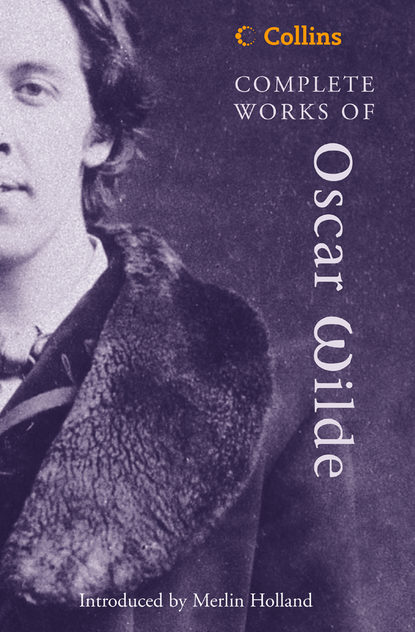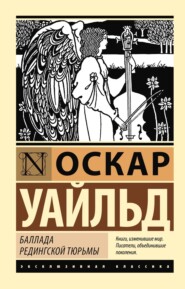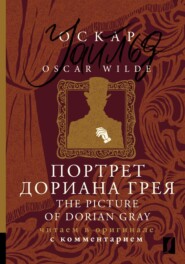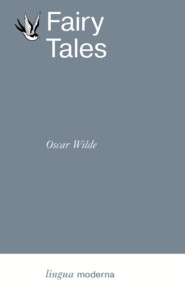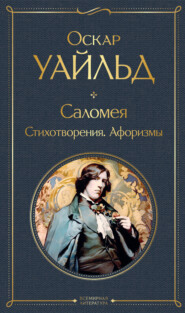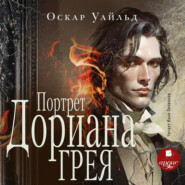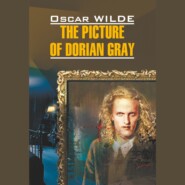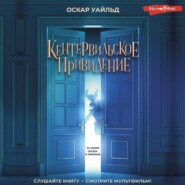По всем вопросам обращайтесь на: info@litportal.ru
(©) 2003-2024.
✖
Complete Works of Oscar Wilde
Настройки чтения
Размер шрифта
Высота строк
Поля
How could it be otherwise? The story of his life is, in a sense, the one great play he lived out and never wrote. It has all the elements of Greek theatre so familiar to him as a classical scholar: the hero apparently in control of his destiny; the hubris; the tragic flaw; and finally the nemesis. His end, though, was not a mercifully quick death but rather a Promethean torment. Five long years of suffering followed his downfall: prison, bankruptcy, disgrace and, the ultimate indignity for one of his generosity, poverty and having to borrow money from friends. Small wonder then that public opinion refuses to allow his life and his work to be separated. To some extent, however, it has created an imbalance which threatens to play into the hands of the critics. The great majority of books written about Wilde has concentrated on the man, and passed fleetingly over the works as being merely secondary expressions of his life as an art form, a problem for which he himself is partly to blame. He has left us with that enduring vision of Wilde as the supreme showman whom nobody, at his peril, should attempt to take seriously. ‘Art,’ as he said, ‘is the only serious thing in the world. And the artist is the only person who is never serious.’ Both were themes which dominated his life.
It is this apparent lack of seriousness on which the greater part of his popular reputation rests and anecdote has done little to change it. Two of the permanent hallmarks of Wildean humour, for example, were an affected indifference to hard work as well as the effortless ease of his own genius. Asked by the critic W. E. Henley how often he went into the office during his editorship of the Woman’s World, Oscar replied, ‘I used to go three times a week for an hour a day, but I have since struck off one of the days.’ And when George Alexander asked him to cut the ‘Gribsby’ scene from The Importance of Being Earnest (restored in the present edition) Wilde could not resist remarking, ‘Do you realise, Alec, this scene you feel is superfluous cost me terrible exhausting labour and heart-rending nerve-racking strain. I assure you on my honour that it must have taken fully five minutes to write.’
Even while he was still at Oxford, Wilde was at pains to cultivate this image of creative idleness. He would read the 19th century poets rather than studying the classical texts for his degree course, or at least that was the impression he liked to give. One of his contemporaries though, David Hunter-Blair, recalled many years later, ‘Of course Wilde worked hard for the high academic honours which he achieved at Oxford. He liked to pose as a dilettante trifling with his books; but I knew of the hours of assiduous reading often into the early hours of the morning. He read surreptitiously in his small and stuffy bedroom. Books lay in apparently hopeless confusion though he knew where to lay his hands on each in every corner.’
This is the Wilde most of us are accustomed to see, the Wilde who admitted to Andre Gide ‘J’ai mis tout mon génie dans ma vie, je n’ai mis que mon talent dans mes oeuvres.’ He persuaded us of its authenticity a hundred years ago and it is still the form in which the public wishes to enjoy his company—witty, nonconformist and faintly perfumed with decadence. Under-standably, they are not qualities which persuade those who inhabit the rarefied atmosphere of pure literary criticism to grant him first division status.
But in the last thirty years, parts of the academic world have started to reassess Oscar Wilde on their own terms, digging beneath the veneer of superficiality and revealing a very different character to the one we thought we knew. All the old magic remains but it is given an added dimension by seeing him occasionally without his mask. We begin to see that, far from lounging nonchalantly through life, very early on he showed a strong determination to succeed as a writer. Put him alongside any ambitious young journalist of the 1990s and compare their paths to success. A couple of youthful literary indiscretions, a period of probation as a critic and reviewer, the editorship of a national magazine and the succès de scandale of a first novel, and the whole liberally peppered with self-publicity—plus ça change. And if Wilde did not have the power of radio and television to rely on, at least he had the lecture hall and the theatre to reach his public direct.
From the moment he left Oxford he was hard at work promoting himself. He made it his business to be seen at any social gathering of importance and at first nights, and courted the friendship of actresses in the public eye – Ellen Terry, Lillie Langtry and Sarah Bernhardt. Then, with little more than a volume of self-published poems to his credit, he was offered a lecture tour in America by Richard D’Oyly Carte to coincide with his production of Patience. Naturally he seized the opportunity. But the programme, originally planned to last four months stretched to nearly a year and it was far from being just as a sedate lecture tour for the self-appointed ‘Professor of Aesthetics’, a young dandy in velvet knee-breeches, rising languidly at mid-day to parade himself across the country as a live ‘aesthete’ for the audiences of Gilbert and Sullivan’s comic opera. In reality detailed research has shown that he faced a punishing schedule of 140 lectures in 260 days from the East to the West coast and up into Canada without the help of air travel and fast trains. He also made sure that he met Walt Whitman, Henry Longfellow and Oliver Wendell Holmes; he arranged for Vera to be staged in New York the following year; and was commissioned to write The Duchess of Padua. He had taken the calculated risk of ridicule and turned it entirely to his advantage both financially and in terms of his reputation.
On his return to England Wilde added his ‘Personal Impressions of America’ to his repertoire and continued lecturing as a source of income until 1888. Indeed, from 1883 until early in 1885 it was almost his only source of income. He was acutely aware of this and tried on several occasions to have himself made an inspector of schools, as Matthew Arnold had done before him, but without success. In 1885 he even writes to an unidentified correspondent: ‘Believe me that it is impossible to live by literature. By journalism a man may make an income but rarely by pure literary work. I would strongly advise you to make some profession, such as that of a tutor, the basis and mainstay of your life, and to keep literature for your finest, rarest moments. Remember that London is full of young men working for literary success, and that you must carve your way to fame. Laurels don’t come for the asking.’ Shortly afterwards he took his own advice and his career in journalism lasted from 1885 until 1891. In addition to helping with the family finances it enabled him to publish most of the stories and essays contained in this volume and played a part in his literary development, the importance of which has been largely underestimated.
Other research is beginning to probe into the influence on his writing of Wilde’s Irish background, and his reading of other authors which was prodigious (at the sheriff’s sale of all his possessions after his arrest, nearly two thousand volumes were disposed of). The old arguments over whether his literary ‘borrowings’ are plagiarism or not, have been reopened and are being reassessed. Wilde as the lightweight author of society comedies, a few memorable poems and some fairy stories may eventually have to make extra room for Wilde as a hard-working professional writer, deeply interested by the issues of his day and carrying in his intellectual baggage something that we all too frequently overlook, a quite extraordinary classical and philosophical education. I realise that for most people the idea of Wilde as a scholar and thinker sits uncomfortably beside their view of him as wit and bon viveur, ‘the spendthrift of my own genius’ as he put it, but that is just another of the delicious paradoxes with which he has left us. His interest in social matters, in the power of the theatre to question and criticise as well as to entertain, his belief in the importance of women’s role in society and his own fragile position within it as an outsider, are all coming to light.
For anyone concerned that all this may destroy the lightness of touch with which they have come to associate Oscar Wilde, an antidote is to hand in the form of his letters. Two collections have been published in 1962 and 1985, and if they have helped to validate the view of him as a more profound writer, they have also added immeasurably to our knowledge of him as a man. Wonderfully fluent in style, when read aloud they must be the nearest we shall ever come to hearing that legendary conversation. I should like to have included some of them here but for reasons of space this was not possible. One, however, the publisher has allowed me and I offer it to you as a little bonne-bouche of what is to be found there. He wrote it to an old friend, Frances Forbes-Robertson, on her marriage in 1899, when he was living in Paris and at his poorest. It has humour, beauty and sadness.
My dear, sweet, beautiful Friend, Eric [her brother] has just sent me your charming letter and I am delighted to have a chance of sending you my congratulations on your marriage, and all the good wishes of one who has always loved and admired you. I met Eric quite by chance and he told me he had been over to the marriage. He was as picturesque and sweet as usual but more than usually vague. I was quite furious with him. He could not quite remember who it was you had married, or whether he was fair or dark, young or old, tall or small. He could not remember where you were married, or what you wore, or whether you looked more than usually beautiful. He said there were a great many people at the wedding but he could not remember their names. He remembered, however, Johnston [another brother] being present. He spoke of the whole thing as a sort of landscape in a morning mist. Your husband’s name he could not for the moment recall: but he said he thought he had it written down at home. He went dreamily away down the Boulevard followed by violent reproaches from me, but they were no more to him than the sound of fluting: he wore the sweet smile of those who are always looking for the moon at mid-day.
So, dear Frankie, you are married, and your husband is a king of men. That is as it should be; those who wed the daughters of the gods are kings, or become so.
I have nothing to offer you but one of my books, that absurd comedy The Importance of Being Earnest, but I send it to you in the hopes that it may live on your bookshelves and be allowed to look at you from time to time. The dress is pretty, it wears Japanese vellum and belongs to a limited family of nine and is not on speaking terms with the popular edition: it refuses to recognise the poor relations whose value is only seven and sixpence. Such as the pride of birth. It is a lesson.
Ah! how delightful it would be to be with you and your husband in your own home! But my dear child how could I get to you? Miles of sea, miles of land, the purple of the mountains and the silver of the rivers divide us: you don’t know how poor I am: I have no money at all: I live, or am supposed to live, on a few francs a day: a bare remnant saved from a shipwreck. Like St Francis of Assisi I am wedded to poverty: but in my case the marriage is not a success; I hate the bride that has been given to me. I see no beauty in her hunger and her rags: I have not the soul of St Francis: my thirst is for the beauty of life: my desire for the joy. But it was dear of you to ask me, and do tell the king of men how touched and grateful I am by the invitation you and he have sent me.
And, also sometimes, send me a line to tell me of the beauty you have found in life. I live now in echoes and have little music of my own. Your old friend
OSCAR
The Collins Complete Works of Oscar Wilde has remained unchanged since 1966 and as it has now been entirely reset, I felt it important to add what I believe to be the best of both his journalism and his lectures. They have hardly been seen at all since their appearance in the first collected works of 1908, brought out by Wilde’s literary executor, Robert Ross, and quite apart from the important role which they played in Wilde’s life, they contain some memorable passages which have been ‘lost’ for too long. Professor Kevin O’Brien of St Francis Xavier University in Nova Scotia has very kindly allowed me to use the texts of ‘The Decorative Arts’ and ‘The House Beautiful’ which he reconstructed from existing manuscripts and contemporary newspaper reports.
The other change which I felt was timely was to put his poems into chronological order. When they were first published in 1881, Wilde grouped them thematically. This sequence was followed in the edition of 1882 which was the last the author oversaw. In the 1908 edition Ross included 24 previously unpublished pieces as well as ‘Ravenna’ ‘The Sphinx’ and ‘The Ballad of Reading Gaol’ all of which had been published as separate volumes. By the following year two more unpublished poems, ‘Pan’ and ‘Désespoir’ had surfaced and were included in editions from then on. All these additional poems were simply tacked on to the end of Wilde’s original order. In the last Collins revision of 1966, for whatever reason, neither Wilde’s nor Ross’s order was respected, and since I have taken the liberty of including a number of poems discovered since then, it seemed sensible to present all the poetry in the order in which Wilde wrote it. For this, and for the new poems, I am indebted to Professor Bobby Fong of Hope College, Michigan, who most generously shared his research with me.
A final word needs to be said about the introduction which my father wrote in 1966. At the time it struck exactly the right note. It was a good balance between broad literary assessment and biography and if it skimmed over the reasons for Wilde’s disgrace and imprisonment, it is understandable. Homosexuality in the United Kingdom was still a criminal offence (though legalised the following year) and, odd though it must sound today, it was an aspect of Oscar Wilde’s private life which still made some of his readers distinctly uneasy. It is a sobering thought that the same prosecution could have been brought at the time my father was writing.
It appears, too, that my father made one or two slips of a historical nature in the family history and it would seem appropriate, in the light of later research, to correct them.
The idea that Wilde’s family is descended from Colonel de Wilde is a pleasingly romantic one for which there is sadly no evidence. The furthest back that his paternal lineage can be traced is to a Dublin merchant, John Wilde, in the first half of the 18th century. The statement about King Oscar of Sweden is also incorrect. There is no record of Sir William operating on the King’s cataract, nor was he the inventor of that operation. He was, however, decorated by the Swedish government in 1862 with the order of the Northern Star.
I hope that I show him no disrespect in pointing this out. If I do, let me offer him a suitable misquotation from our common ancestor: ‘Parents begin by loving their children. After a time they are exasperated by them. It is rarely impossible to forgive them.’
INTRODUCTION TO THE 1966 EDITION by VYVYAN HOLLAND (#ulink_7c8cf477-eabd-5ba7-a402-b65ecc07d554)
Oscar Wilde’s family is Dutch in origin. The first Wilde to settle in Ireland was a certain Colonel de Wilde, the son of an artist, examples of whose work hang in the Art Gallery at The Hague; he was a soldier of fortune who was granted lands in Connaught at the end of the seventeenth century for his services to King William III of England. He is said to have repented his adherence to the English king and to have become ‘more Irish than the Irish’. From that time the family were land agents and doctors.
My father’s parents were both distinguished in their own way. Sir William Wilde was the foremost eye and ear specialist of his time, and a physician of international repute. He invented the operation for cataract and performed it on King Oscar of Sweden, for which he received the Order of the Polar Star. His mother, Lady Wilde, born Jane Francesca Elgee, was a staunch Irish Nationalist, who wrote fierce poems and articles in the Irish Nationalist newspaper The Nation, under the name of ‘Speranza’, a name she had adopted from her motto ‘Fidanza, Constanza, Speranza’ – Faith, Constancy, Hope. Lady Wilde had three children, William, Oscar and Isola, who died when she was ten, to Oscar’s lasting grief. Oscar Wilde was born on 16 October 1854, and was given the names Oscar Fingal O’Flahertie Wills Wilde.
His education began at Portora Royal School in Enniskillen, from which he obtained a scholarship to Trinity College, Dublin, where he won the Berkeley Gold Medal for Greek. From there he received a demyship to Magdalen College, Oxford. While at Oxford he came under the influence of John Ruskin and Walter Pater. Pater preached the love of Art for Art’s sake, and Oscar Wilde, going one step further, set out to idolise beauty for beauty’s sake and filled his rooms looking over the Cherwell with blue china and reproductions of paintings by Rossetti and Burne-Jones. Aestheticism was the key-note of his creed and he declared that beauty was the ideal after which everyone should strive.
My father’s life at Oxford, one gathers from his letters, was a joyous one. He entered whole-heartedly into the undergraduate life of the University and distinguished himself by winning the Newdigate Prize for English verse and getting a double first in Classics. Upon this note he came to London in 1879 with the remains of a small patrimony and started to make his living by his pen. True to his doctrine of beauty he established himself as the ‘Apostle of Aestheticism’ and drew attention to himself by the eccentricity of his dress. It must be remembered that at this period the clothing of the British upper middle classes was rigidly conventional, and the sight of him in the evening in a velvet coat edged with braid, knee-breeches, black silk stockings, a soft loose shirt with a wide turn-down collar and a large flowing tie, was bound to arouse indignant curiosity.
At the same time he was writing poems, and in 1880 he also wrote Vera, a rather immature play, which ran for one week in New York in 1883 and never reached the boards in London. In 1881 his collected poems were published, and in 1882, being short of money, he was persuaded to go on a lecture tour to America. This proved to be a brilliant success and he returned to England in 1883, covered, if not with glory, at least with considerable notoriety.
On his return to Europe, he retired to Paris to finish another play, The Duchess of Padua, for the American actress Mary Anderson; but when she received the play, she turned it down flatly. This was really a disaster for Oscar Wilde, and he returned to England and went on a series of lecture tours in the provinces. However, this nomadic life soon palled and he returned to London where, in 1884, he married Constance Mary, daughter of a distinguished Irish barrister, Horace Lloyd, Q.C. Oscar was romantically in love with his beautiful young wife and for some years he was ideally happy. He had two sons by his wife – Cyril, born in 1885, and myself in 1886.
Oddly enough, although his literary activities had been almost entirely confined to writing poetry until his marriage, he now turned largely to prose and, with the exception of The Sphinx, the idea of which had occurred to him much earlier, he wrote few poems until after his imprisonment, when he wrote The Ballad of Reading Gaol. Boris Brasol, who wrote one of the only two carefully considered lives of my father, sums up his poetic period as follows:
‘He began his literary career as a composer of sonorous and pleasing verses in which, however, as he himself admitted, ‘there was more rhyme than reason’; yet as he grew older, he seemed to have lost all taste for poetry, and though there is nothing that would justify the contention that he ever regarded his early poems as callow productions, the fact remains that upon reaching maturity he took no further interest in that delightful occupation which Browning aptly called “the unlocking of hearts with sonnet keys”.’
Upon what, then, does his reputation as an author rest? His early poems were mostly lyrical, and certain of them will undoubtedly pass the test of time. His true literary life was spread over seven years only, from 1888 until 1894. In 1887 he had become editor of Woman’s World in which capacity he continued until 1889 when he resigned. He had gathered a reputation for eccentricity and, still more, as a conversationalist. There are few people alive now who remember his conversation, but when in 1954 a plaque was unveiled by Sir Compton Mackenzie on the house in Tite Street where my family lived for eleven years, he read the following message from Sir Max Beerbohm (the Incomparable Max!), who felt too frail to undertake the journey to London to be present:
‘I have had the privilege of listening to many masters of table talk – Meredith and Swinburne, Edmund Gosse and Henry James, Augustine Birrell and Arthur Balfour, Gilbert Chesterton and Desmond MacCarthy and Hilaire Belloc – all of them splendid in their own way. But Oscar was the greatest of them all – the most spontaneous and yet the most polished, the most soothing and yet the most surprising…Nobody was willing to interrupt the music of so magnificent a virtuoso. To have heard him consoled me for not having heard Dr Johnson or Edmund Burke, Lord Brougham or Sidney Smith.’
Winston Churchill was once asked whom he would like to meet and talk with in after life, and he replied, without hesitation: ‘Oscar Wilde.’
Wilde’s first memorable work was The Happy Prince, which appeared in 1888. The stories in The Happy Prince are really poems in prose more than fairy tales for children; and yet the remarkable thing is that they appeal equally to children and adults.
In 1891 he produced a small volume of four stories which he had written some time previously. The book was called Lord Arthur Savile’s Crime and Other Stories, the other three tales being ‘The Canterville Ghost’, ‘The Sphinx without a Secret’ and ‘The Model Millionaire’. The first two of these stories have been dramatised and their substance has been copied on several occasions; they possess the light-hearted gaiety and insouciance that find their fullest expression in The Importance of Being Earnest, and show the buoyancy of my father’s spirit at that time.
A House of Pomegranates, my father’s other book of short stories – one can hardly call them fairy tales – appeared with illustrations by Charles Shannon, R.A. in the same year. This book completely puzzled the critics, who thought that the stories were meant for children and protested, quite rightly, that no child could understand them. This was followed by The Sphinx, which really dated from his Oxford days, and upon which he had worked at intervals ever since. The critics were again confused by the poem, which was really nothing more than an experiment with words. He revelled in finding rhymes for words such as hieroglyph and catafalque, which he rhymed with hippogriff and Amenalk.
In 1891, too, Oscar Wilde’s only novel, The Picture of Dorian Gray, appeared in book form, enlarged from the original which had been already published in Lippincott’s Magazine. The publication of this work was greeted with a storm of protest by the critics. The English Press was almost unanimous in its condemnation of the book. The idea of the book had first come to my father some years before. Hesketh Pearson tells the story of it in his Life of Oscar Wilde; ‘In the year 1884 Wilde used to drop in at the studio of a painter, Basil Ward, one of whose sitters was a young man of exceptional beauty…When the portrait was done and the youth had gone, Wilde happened to say, “What a pity that such a glorious creature should ever grow old!” The artist agreed, adding, “How delightful it would be if he could remain exactly as he is, while the portrait aged and withered in his stead!” Wilde expressed his obligation by calling the painter in his story Basil Hallward.’
By far the most interesting and entertaining book of essays that Oscar Wilde wrote was Intentions, in which he really gave rein to his imagination. In my own opinion, it is the most absorbing of all his works. The Critic as Artist occupies considerably more than half of it; its sub-title ‘with some remarks upon the importance of doing nothing’ shows the curious charm the word ‘importance’ had for him; it occurs in the titles of two of his plays, and is constantly cropping up in his essays. It is almost as though the word held a strange sonorousness for him and that he liked to roll it, if not round his tongue, then round his mind.
But the most interesting essay in the book is The Decay of Lying. The essay is in the form of a dialogue, the dominant theme being the vast superiority of Art over Nature, leading to the conclusion that Nature follows Art.
Oscar Wilde now entered into his final stage, the one for which he was destined, that of a dramatist. In 1891 he wrote Lady Windermere’s Fan, which he described as ‘one of those modern drawing-room plays with pink lampshades’. It was produced at the St James’s Theatre in February, 1892 by George Alexander. There were loud cries of ‘Author!’ at the end of the play and Wilde came onto the stage with a cigarette in his gloved hand and said: ‘Ladies and Gentlemen. I have enjoyed this evening immensely. The actors have given us a charming rendering of a delightful play, and your appreciation has been most intelligent. I congratulate you on the great success of your performance which persuades me that you think almost as highly of the play as I do.’
When Wilde had finished Lady Windermere’s Fan he retired to Paris and wrote his Biblical play Salome in French, dedicated to Pierre Louÿs who made certain corrections in the French, but did not otherwise interfere with it. Sarah Bernhardt was immensely attracted to this play, and she put it into rehearsal at the Palace Theatre in London, with herself in the title-role. However, the Lord Chamberlain refused to grant it a licence, on the ground that no play which contained Biblical characters was allowed to be performed on the English stage. This so annoyed Wilde that he announced his intentions of renouncing his British nationality and becoming a Frenchman, there being no such restrictions in France. As matters turned out, it is a pity that he did not carry out his threat.
In the summer of 1892 he wrote A Woman of No Importance, which was produced with immediate success by Herbert Beerbohm Tree at the Haymarket in 1893. Once again the audience rose to its feet and called for the author. This time remembering the bad impression he had made on the first night of Lady Windermere’s Fan, he got up in the box in which he was sitting and announced: ‘Ladies and Gentlemen, I regret to inform you that Mr Oscar Wilde is not in the house.’
On 3 January 1895, Oscar Wilde’s third important play An Ideal Husband was produced by Lewis Waller. The Prince of Wales was present at the first night. It was almost unprecedented for Royalty to be present at a first night, and it seemed now that Wilde’s future was assured. George Bernard Shaw’s comment on the play is worth repeating: ‘Mr Oscar Wilde’s new play at the Haymarket is a dangerous subject, because he has the property of making his critics dull…He plays with everything; with wit, with philosophy, with drama, with actors and audience, with the whole theatre.’
And so we come to Oscar Wilde’s last, and his most brilliant play, The Importance of Being Earnest. Wilde originally wrote the play in four acts, as he had written his other three major plays. He submitted it in this form to George Alexander who, with the object of making room for a ‘curtain raiser’, as was usual in those days, asked Wilde to cut it to three acts. When, four years later, Leonard Smithers published the play in book form, it was this three-act version that he had printed, and each subsequent edition has followed this pattern. Why this has been so is not clear, but the play as written by Oscar Wilde, with two extra characters in it, is the play as given in this volume. As Mr Philip Drake, who is responsible for this edition of Wilde’s works, remarked, it seems a pity that George Alexander should have a permanent influence on the play.
The Importance of Being Earnest was produced at the St James’s Theatre on 14 February 1895. Wilde had now reached the pinnacle of his success. Two plays of his were drawing crowded audiences in the West End, and actormanagers were falling over one another to beg him to write for them. Then the Marquess of Queensberry, with the object of attacking his son, Lord Alfred Douglas, because of his friendship with Wilde, launched a campaign of ungovernable fury on Wilde. The story has been told often enough; Alfred Douglas, whose only object was to see his father in the dock, persuaded Oscar Wilde to bring a prosecution for criminal libel against him. Lord Queensberry was triumphantly acquitted and his place in the dock was taken by Oscar Wilde, who was sentenced to two years imprisonment.
While in prison, Wilde wrote the letter to Lord Alfred Douglas, part of which was published in 1905 by Robert Ross, under the title of De Profundis. In a letter to Robert Ross he wrote: ‘This is indeed an Encyclical letter, and as the Bulls of the Holy Father are named from their opening words, it may be spoken of as Epistola: in Carcere el Vinculis.’ The manuscript was not revised by Wilde, although he intended to do this, as is shown by the letter he wrote to Robert Ross: ‘As soon as you have read it, I want you to have it copied for me. As regards the method of copying, I wish the copy to be done on good paper and a wide rubricated margin should be left for corrections.’ A copy of De Profundis was made and sent to Alfred Douglas; but after reading the first few pages, he destroyed it, probably thinking, rather naively, that there was no other copy in existence. Douglas strenuously denied ever having received the letter, and he could not go back on this without contradicting himself.
After my father’s death in 1900, Alfred Douglas tried to get hold of the manuscript, but Robert Ross settled the matter by sealing it up and presenting it to the British Museum, with the proviso that it should remain sealed for sixty years, that is to say until 1960, at the end of which time it might safely be presumed that everyone mentioned in it would be dead.
The copying was done hastily and without much care, because the version printed in 1949 varied in several particulars from the original manuscript, although, of course, the substance was the same. The version here printed has been carefully compared with the original and is exactly as Wilde wrote it.
The Portrait of Mr. W. H. was first published as an article of 12,000 words in Blackwood’s Magazine for July, 1889. Oscar Wilde became more and more obsessed with the idea contained in the article and during the next four years he re-wrote the story and added to it, bringing the total up to 25,000 words. The manuscript disappeared at the time of the sale of my father’s effects at Tite Street, together with others, and did not re-appear until the year 1920 in America, where it was published in a limited edition by Mitchell Kennerley. The expanded version is printed in this edition.
The only work that my father wrote after 1897 was the poem The Ballad of Reading Gaol, which he wrote at Berneval, so that Douglas’s claim to have had a large share in writing it may be ignored, as he and Wilde did not meet again until later.





